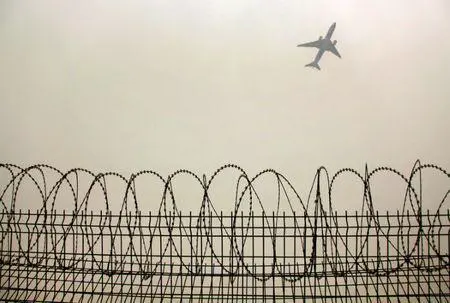China issued a white paper on Tuesday noting that the country adopts policies on freedom of religious belief and that such freedom is protected under the socialist legal system with Chinese characteristics.
The white paper, titled "China's Policies and Practices on Protecting Freedom of Religious Belief," was issued by the State Council Information Office (SCIO).
It said that respecting and protecting freedom of religious belief is a fundamental policy of the Communist Party of China and the Chinese government.
"Believers and non-believers enjoy the same political, economic, social and cultural rights, and must not be treated differently because of a difference in belief," the white paper said, adding that the state respects citizens' freedom of religious belief and protects their normal religious activities.
Independence, self-management
It said China manages religious affairs in accordance with the law, adheres to the principle of independence and self-management, actively guides religions to adapt to the socialist society, and unites religious believers and non-believers to the greatest extent.
A white paper issued by China's State Council Information Office Tuesday said that China protects freedom of religious belief.
Also, the document said the socialist legal system with Chinese characteristics is continuously being improved, providing stronger guarantees for the lawful rights and interests of religious believers.
Foreigners
The religious activities of foreigners in China are also protected in accordance with the law, according to the white paper.
China respects foreigners' freedom of religious belief within its territory, and is committed to protecting friendly relations, cultural and academic exchanges about religion between foreigners and Chinese religious groups.
Foreigners may attend religious activities at temples, mosques, churches, and other sites for religious activities, but shall conduct religious activities in line with law, it stressed.
The law also prohibits overseas nongovernmental organizations from illegally engaging in or sponsoring religious activities.
Extremism
The document noted that religious extremism and violent terrorist activities are dealt with in accordance with the law. It said China opposes all extremism that seeks to instigate hatred, incite discrimination and advocate violence by distorting religious doctrines or through other means, and forbids any discriminatory behavior on the grounds of region, ethnicity and religion.
Xi Yanchun, deputy director-general of the Press Bureau, State Council Information Office, at the press conference, April 3, 2018.
"China takes measures against the propagation and spread of religious extremism, and at the same time, carefully avoids linking violent terrorism and religious extremism with any particular ethnic group or religion," it said.
Development of religious groups
There are about 5,500 religious groups in China, including seven national organizations, and about 144,000 places of worship registered for religious activities in China, including 33,500 Buddhist temples of different schools, 9,000 Taoist temples, 35,000 Islamic mosques, 6,000 Catholic churches and places of assembly spread across 98 dioceses, and 60,000 Protestant churches and places of assembly, according to the white paper.
Religious texts and literature have been published, religious education systems improved and social security for religious clerical personnel enhanced.
All normal religious activities, which believers conduct at places of worship or in their own homes, are protected by law, and no organization or individual may infringe on these rights, the white paper said.
Religious groups in China have made efforts to interpret religious teachings and rules according to China's conditions and contemporary needs, actively engaged in charity activities and conscientiously resisted extremism.
About 20,000 prominent religious figures are serving as deputies and members at all levels of the National People's Congresse and committees of the Chinese People's Political Consultative Conference, according to the document.
(ASIA PACIFIC DAILY)
 简体中文
简体中文

